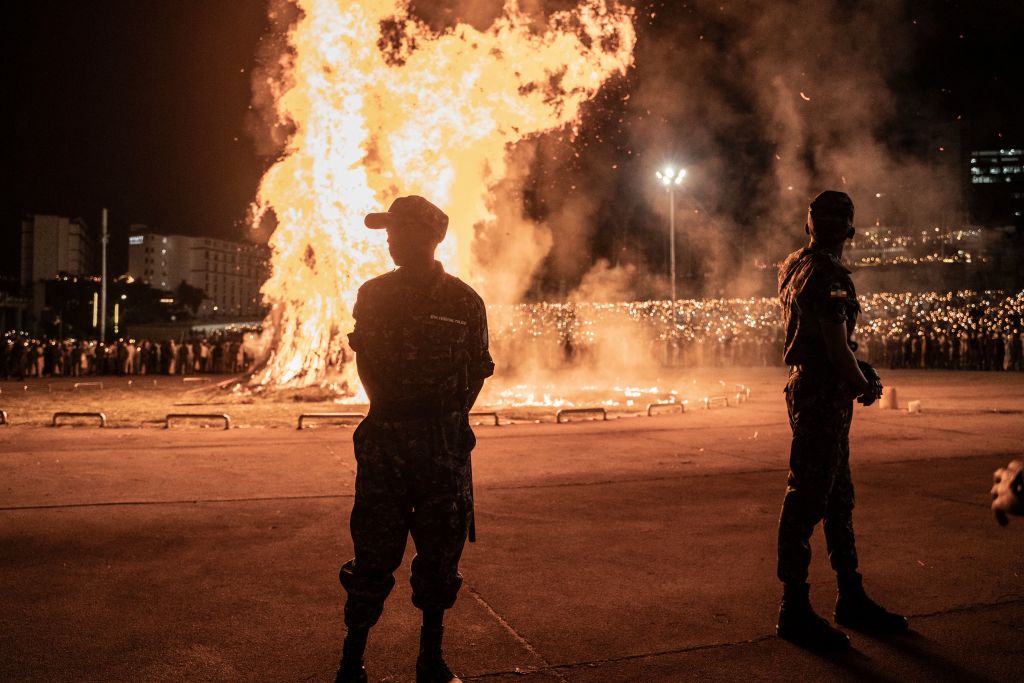ADF STAFF
The United Nations’ Special Advisor on the Prevention of Genocide is sounding the alarm over “atrocity crimes” in Ethiopia and warning of the risk of widening ethnically based violence.
Alice Wairimu Nderitu listed incidents of targeted killings of families, rape used as a weapon of war and the forced displacement of communities. She said the risk factors for a genocide are present in the country one year after a peace deal was signed to end the war in Tigray.
“The suffering of innocent civilians should never be accepted as inevitable,” Nderitu said. “Rather, it must reinforce our commitment to ensure that impunity does not prevail and that all possible prevention actions are prioritized.”
Speaking to ADF, Dr. Bizuneh Getachew Yimenu, an expert on Ethiopian federalism and a teaching fellow at the University of Birmingham, said warnings of a genocide are “an overstatement,” but he is concerned about the ethnic dimension to violence in the country.
“Whenever there is conflict, people tend to create a fault line between ‘our group’ and ‘their group,’” he said. “So, they use that labeling in order to attack.”
Tigray Violence Persists
In the northern region of Tigray, life has not returned to normal after the formal end of hostilities in November 2022. Nderitu noted the destabilizing presence of Eritrean troops in the country despite international calls for them to withdraw. Civilian survivors of attacks often note that their attackers use ethnic slurs such as “agame” or “woyane.”
“Perpetrators have expressed the intention to target a group on the basis of ethnicity,” she said. “This includes describing Tigrayans as ‘cancer,’ indicating a desire to kill men and children, or else to destroy women’s reproductive capacities. This must raise all alarms that the risk of genocide is present and growing,”
More than 10,000 survivors of sexual violence in Tigray sought care from the start of the conflict to July 2023. The region has major humanitarian needs, particularly after the World Food Programme’s (WFP) suspension of aid in 2023 when it discovered widescale theft of food aid by soldiers and government officials. The WFP resumed food distributions to displaced people in October.
“While the signing of the agreement may have mostly silenced the guns, it has not resolved the conflict,” said Mohamed Chande Othman, chairman of the International Commission of Human Rights Experts on Ethiopia.
Other Regions Simmer
In the Amhara region, clashes have escalated in recent months between members of an ethnic Amhara militia known as the Fano and government forces. In that region, Amharas have longstanding grievances over land rights and believe they have been targeted for ethnically-based attacks. The historic city of Gondar was the site of heavy fighting on September 24, when Fano members attacked two prisons to liberate fighters, and government forces responded by killing 50 militants.
In Oromia, the region surrounding the federal capital, an ethnic militant group known as the Oromo Liberation Army (OLA) has been in a decadeslong fight for land rights. In Western Oromia, the group has targeted governmental forces and Amhara farmers who they consider to be intruders. In one eight-hour span in June 2022, attackers suspected of being part of the OLA massacred an estimated 400 Amhara civilians in several villages, according to Human Rights Watch.
No Easy Answers
Bizuneh said there is no simple solution to the violence in these three regions. Peacebuilding is particularly difficult because militant groups such as the Fano lack a clear hierarchy that can come to the table to negotiate peace. Peace is made more difficult when each side makes nonnegotiable demands that are nonstarters for the other side.
“This thing cannot be stopped over night or in a few weeks,” Bizuneh said. “Of course, security should be strengthened, but government security cannot guard every village. There should be some sort of reconciliation.”
Bizuneh said one action that could help is tamping down the ethnically charged rhetoric that proliferates on YouTube. Many of these videos are created outside of the country and fan the flames of hatred.
“They come on social media and YouTube and insult another group, and people can see this anywhere in the world, including in an Ethiopian village,” he said. “People start to interpret every interaction at the village level with what is going on on YouTube.”
Bizuneh advised people to be more careful about the words they use online. “I don’t think there is a way to stop that unless people start to consider the impact of their rhetoric on social media on the ground in Ethiopia,” he said. “People should rethink their actions.”
In a statement accompanying her report, the U.N.’s Nderitu cautioned that the country’s multiple conflicts risk erupting into something larger. She urged the world not to look away.
“When indicators and risk factors are present and point to the possible commission of the gravest crimes, the region and the international community at large must work towards preventing their occurrence and towards mitigating their impact,” Nderitu said. “Violence must be halted.”

